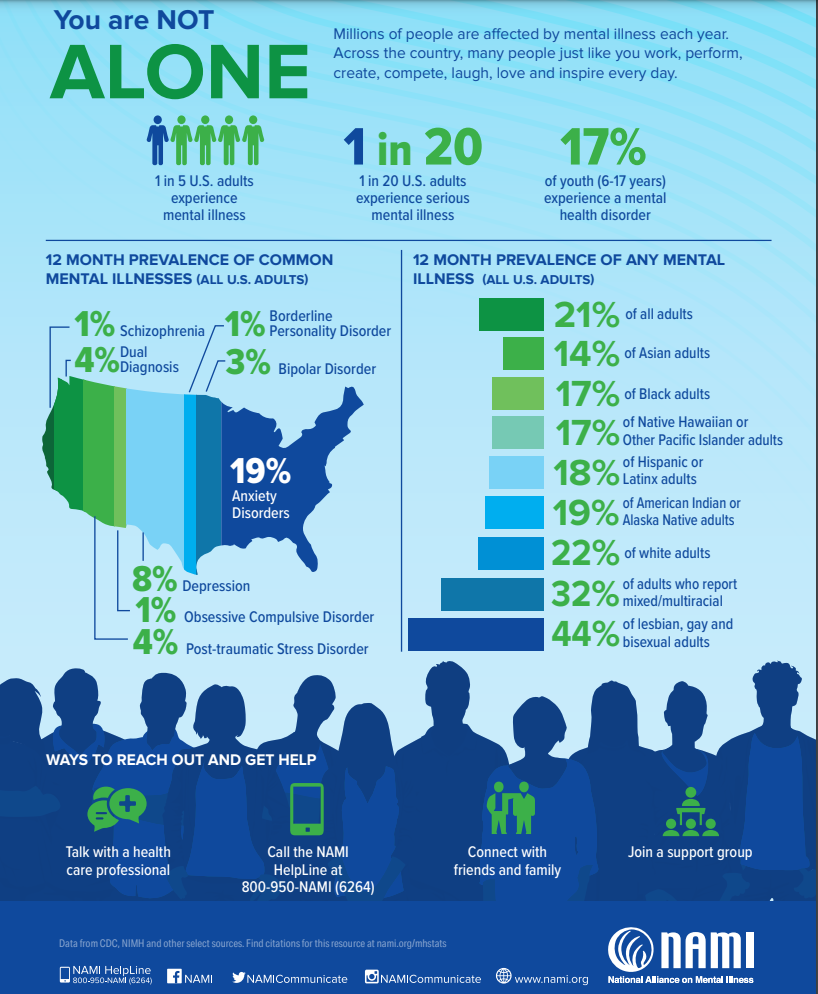Services devoted to the treatment of mental illnesses and the improvement of mental health in people with mental disorders or problems
Mental Health Treatment
Though it may seem like mental health issues are a modern problem, society has struggled with mental health since the 5th century B.C.
Treatments over the centuries have varied from exorcisms to institutionalization and even lobotomy. Early pioneers in the field fought for hygienic and human treatment of patients. Yet, America’s negative attitude toward mental illness continued until the late 1950s.
Thanks to the 1963 Community Mental Health Centers Act, asylums were replaced with mental health hospitals.
The act helped improve medical environments for mental health patients. It focused on performing both prevention and rehabilitation care.
Yet some argue the shift from asylum to mental health hospitals didn’t solve anything. It instead transferred the problem from one location to another ( Transinstitutionalization theory).
The following are notable policies that have led to modern mental health treatment:
- National Mental Health Act: The governmental allocation of funds into mental health research and treatment.
- Mental Retardation Facilities and Community Health Centers Construction Act: Creation of community-oriented mental health support, services, and centers.
- National Alliance for the Mentally Ill Foundation Established: The central advocacy, support, education, and system for mental health issues.
- Mental Health Parity Act: Prevents employers from overcharging for mental health benefits. Ensures costs are equal to standard surgical and medical benefits. Strengthened in 2008 to prevent limits for mental health and substance abuse benefits.
- Americans With Disabilities Act: Prevents discrimination from hiring employers against applicants with mental health issues. It also classifies mental health disorders as disabilities.
Local state laws impact services, aid, and funding toward mental health treatment. Some states, like California, offer greater mental health treatment, aid, and support. Their 2004 Mental Health Services act supported cross-generational aid services for mental health issues via a 1% tax. Yet other states take a lax stance with minimal local care.
State-to-state changes in aid make the consistency and access of aid challenging to use.
Mental Health Facts
Here are the current statistics on those experiencing mental health issues in the U.S.
Mental Health Treatments
Causes of mental illness vary depending on the condition. Some can occur due to environmental pressures, while others are genetic conditions. This makes prevention care and treatment complex, as there’s no one size fits all answer.
Yet, the fact remains that *1 in 5 U.S. adults will experience a mental illness. Some ages are more prone to diseases than others. For ages 10 to 34, suicide is the 2nd leading cause of death. Hospitals now keep close eyes on mental health patients for preventative care.
Below are some forms of accessible treatment. A single patient can interact with multiple sources for a full recovery. Some only need services for a short time, while others rely on them for their lifetime. Treatment options include:
- Therapy: A professional offering aid and support to those in need. Includes mental health and other quality of life issues.
- Psychotherapy: Specialized mental health therapy services, often including diagnosis and medication.
- Medication: Doctor supplied medicine to improve mental and physical wellness damaged by mental illness. Helps create a better quality of life for patients.
- Hospitalization: Facility aid to those with severe mental health symptoms. Offers one on one treatments to re-diagnose and adjust treatment plans. Also connects patients with external sources needed to improve their quality of life.
- Support Groups: A community-based therapy solution. Connects those with the same mental illness in a non-professional therapy setting.
- Complementary or Alternative Medication (CAM): Treatment services that rest outside of standard care practice. Can include quality of life changes like exercise or non-traditional medicine.
Modern Mental Health Federal Laws
- SUPPORT Act: Strengthened workforce, education, and economic support. Uses evidence-based care to combat addiction and mental health issues.
- 21st Century Cures Act: Creation of federal-level positions to study and fund services dedicated to mental health care.
- Affordable Care Act: Decreases the cost of mental health insurance. Ensures a broad spectrum of affordable care.
- Mental Health Parity and Addiction Equity Act: Increases access to mental health insurance comparable to standard medical insurance.
- Garret Lee Smith Memorial Act: The first legislation dedicated to allocating funds for youth suicide prevention services.
- Children’s Health Act: An intensive care act improving substance abuse and mental health services. Focuses on children and adolescent groups. Helps create and install proposals. Allows use of back grant funds and supporting those in need.

